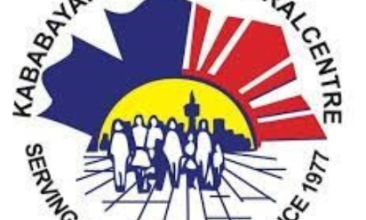What are the financial responsibilities of sponsors?
Sponsorship groups are responsible for providing income support, plus start-up costs, to the refugee(s) they sponsor.
Start-up costs include, but are not limited to:
- one-time payment for household items (basic window coverings and common household products such as kitchen utensils, pots, pans, brooms, mops, detergents and cleansers);
- furniture (beds, mattresses, dining set, couches, end table and lamps, etc.);
- linens (towels, bedding etc);
- food staples;
- both regular and winter clothing;
- school supplies
- school registration fees (if applicable).
Monthly costs include:
- basic needs, such as food and incidentals;
- housing costs (including utilities);
- monthly public transportation passes for all adults (In areas with no public transit system, the monthly transportation allowance may be waived as long as alternative transportation is provided);
- a communication allowance to cover the costs of a telephone and/or internet connection.
In addition to the costs above, sponsors should plan to cover deposits for utilities, phone and internet installation and rental deposit.
Sponsoring groups should support the refugee towards becoming self-sufficient. This can include enrolling the refugees in language training or employment counseling before supporting them to find employment.
Sponsoring groups are also responsible to provide financial support for One Year Window opportunity (OYW) cases for up to 12 months after their arrival in Canada.
What is not included in financial responsibilities?
Sponsoring groups are not responsible to cover the costs of the refugee’s Immigration Loan, or for any debt that a refugee incurs in Canada, unless they have co-signed loans.
How long should sponsoring groups provide financial support?
Sponsoring groups need to provide the refugee with both financial and non-financial support for:
- up to 12 months (from time of arrival in Canada) or until the refugee becomes self-sufficient, whichever comes first
- up to 6 months or until the refugee becomes self-sufficient, whichever comes first, for cases sponsored under the Blended Visa Office Referred (BVOR) Program (Immigration, Refugee and Citizenship Canada will cover an additional 6 months).
What does “self-sufficient” mean?
When a refugee’s level of total earned household income has surpassed 50% of their household’s level of financial support, deductions can be made for every dollar earned above that threshold. Once the monthly support is reduced to zero dollars (i.e. after the refugee has earned 150% of their household’s financial support level) and the refugee can sufficiently support themselves and their families on an ongoing basis, they may no longer require financial support from their sponsor.
At any time during the commitment period, if the financial situation of the refugee and their family changes, the sponsor must resume financial support, as needed.
Sponsors should continue to provide non-financial and emotional support throughout the sponsorship period.
How much does it cost?
Sponsoring groups should provide income support to at least the equivalent amount that is provided by the Resettlement Assistance Program (RAP) in the expected community of settlement, adjusted by any eligible in-kind contributions.
The Sponsorship Cost Table gives only a rough estimate. The actual cost of the sponsorship may be higher than the amount listed in the Sponsorship Cost Table. Refugee Sponsorship Training Program (RSTP) has developed a tool to help estimate the minimum sponsorship costs.

